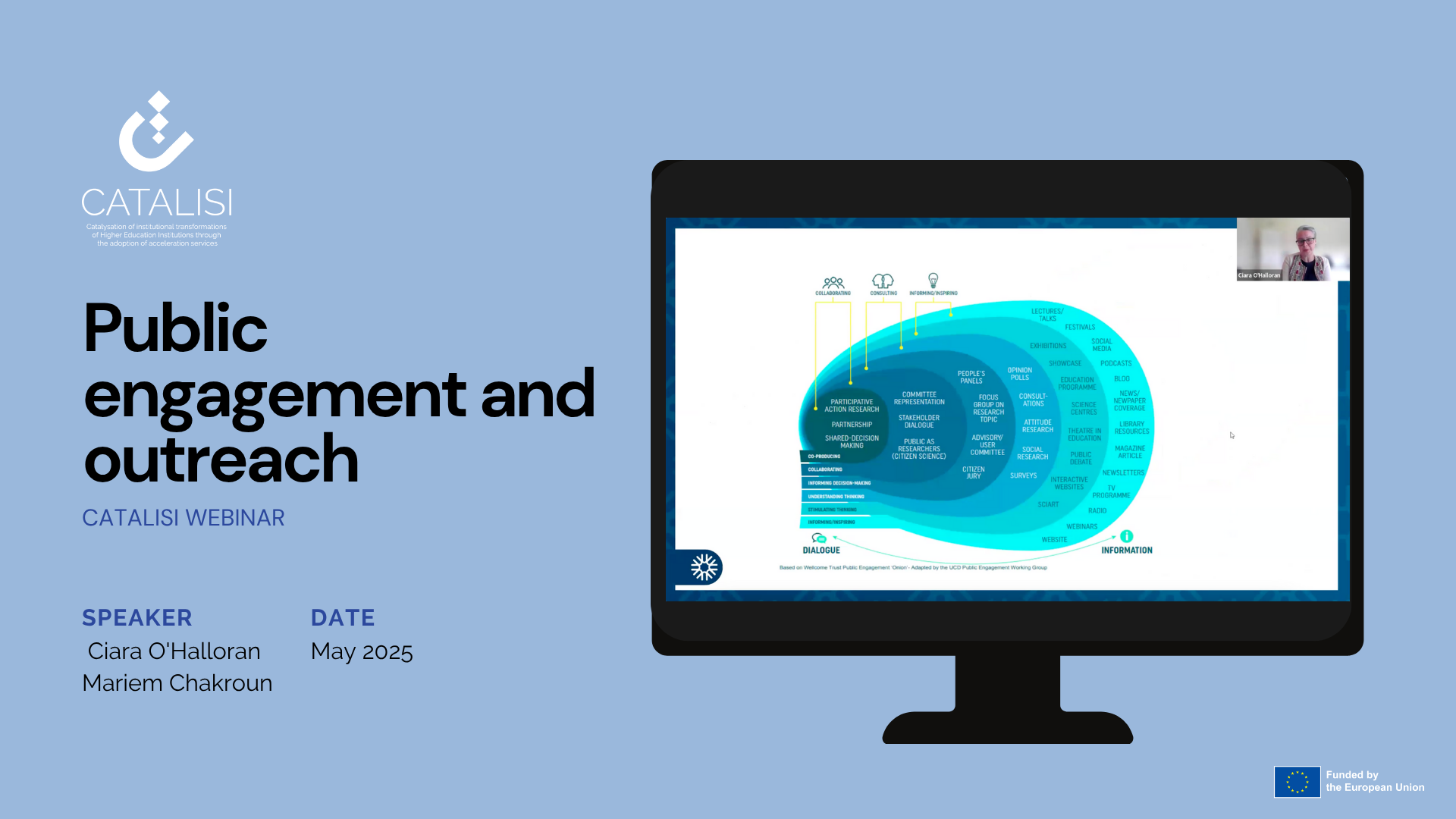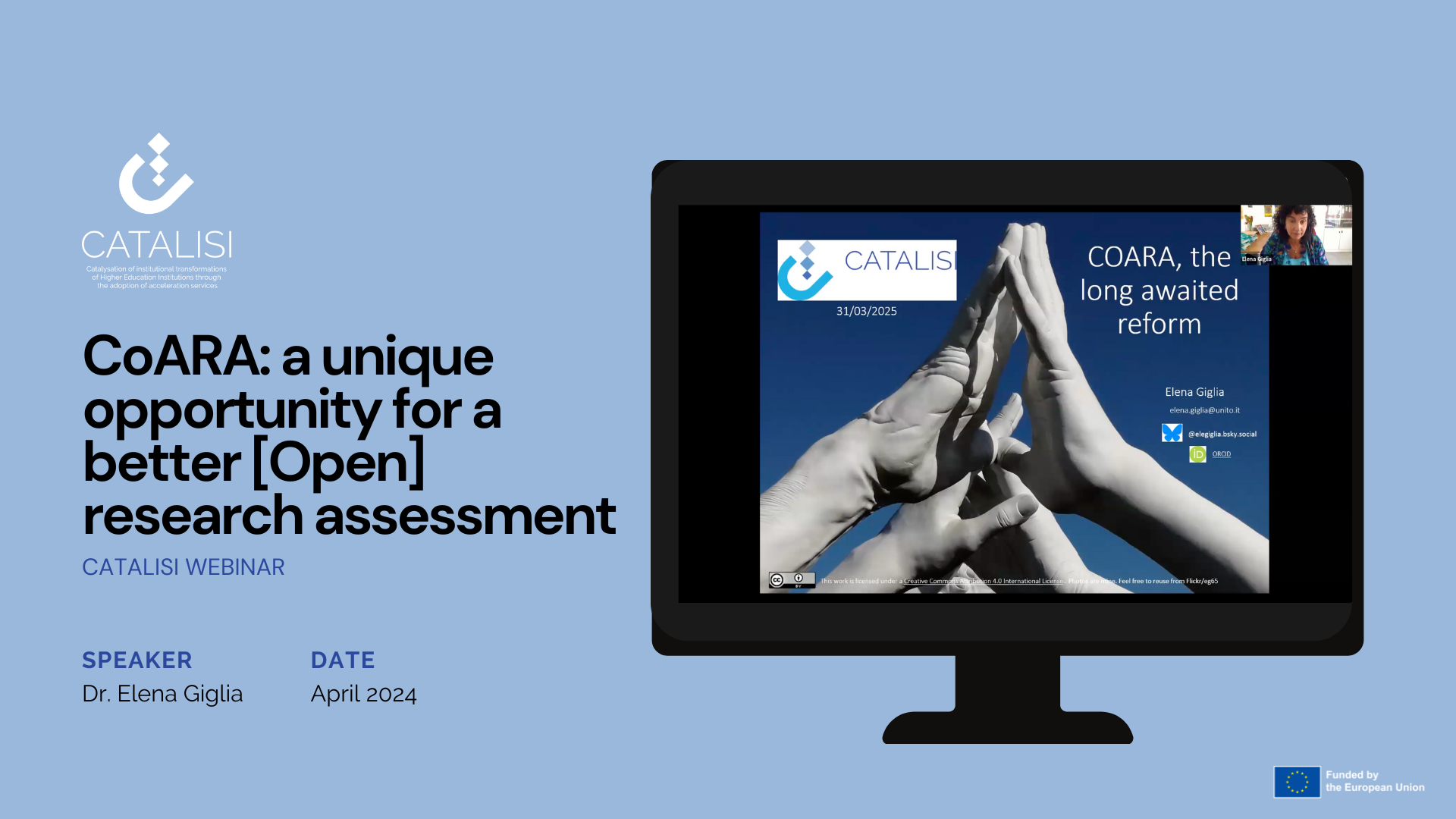This session highlighted the challenges and best practices in fostering public engagement and effective stakeholder collaboration, particularly through the lens of ‘Living Labs’ methodologies.
Ciara O’Halloran | University College Cork: Engaging for Societal Impact
Ciara O’Halloran, a Programme Officer from University College Cork (UCC), shared insights from UCC’s work with the “UNIC: European University Alliance”, and its “Centre for City Futures.” This centre focuses on participation, engagement, and collaboration to address societal challenges and find impactful solutions through engaged research and learning.
- The Quintuple Helix Model: Moving beyond the traditional triple (academia, government, industry) and quadruple (including public/civil society) helix, UCC embraces a quintuple helix, recognising the environment as a key actor in societal and ecological transitions.
- Shifting from Dissemination to Co-production: Kira emphasised the importance of moving from simply disseminating information to genuinely co-producing solutions with all actors, fostering mutual value and shared decision-making.
- The Power of Futures Thinking: UCC utilises “futures thinking” methods, inviting participants to imagine preferred futures (e.g., headlines for their city in 2050). This empowering approach, rooted in the idea that the future isn’t predetermined, encourages collaborative action towards desirable outcomes.
- Practical Engagement – The Cork City Council Example: UCC partnered with Cork City Council on their Local Economic Community Plan (LACP). They developed a toolkit to build more dialogue and co-creation into the consultation process and ran dedicated co-creation sessions, which have been recognised as best practice nationally.
- Overcoming Engagement Challenges: The most time-consuming yet crucial part of engagement is the initial “stakeholder mapping”. This requires significant time, leveraging existing networks (like those of the city council), and meeting people where they are, addressing barriers such as childcare or accessibility. It’s vital that engagement is relevant to participants, showing them a clear stake in the process.
Enoll’s Approach to Stakeholder Engagement
Miriam Chakron from Enoll (European Network of Living Labs) outlined their systematic approach to stakeholder engagement, crucial for co-creation and fostering innovation. She highlighted the importance of a flexible approach to engagement and a continuous learning process.
Key steps in Enoll’s methodology include:
- Identifying and Engaging Stakeholders: This involves creating a comprehensive list of all affected stakeholders, documenting their influence and interest, and digging deeper into their motivations and needs.
- Defining Goals and Responsibilities: Clearly outlining what you want to achieve together and who is responsible for engagement.
- Tailored Communication: Understanding motivations and adapting communication strategies to avoid jargon and make information accessible to diverse groups.
- Building Trust: Addressing potential obstacles such as stakeholder fatigue, ensuring transparency, and demonstrating how input will influence future decisions.
- Co-creating Solutions: Based on identified needs, actively involving stakeholders in developing solutions, often through workshops and local activities.
- Continuous Monitoring and Feedback: Regularly checking in with stakeholders and providing updates on progress to maintain engagement and ensure their contributions are valued.
The discussions highlighted that institutional transformation is a long-term process and that overcoming challenges requires learning, adaptability, and a shift in mentality within HEIs. The “small acts” of engagement, when multiplied, can lead to significant transformative change within communities and institutions.



